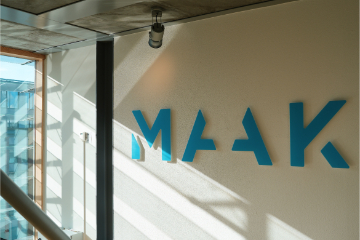
The term joint venture is used to describe various forms of business cooperation between two or more venturers. The companies intend to cooperate but retain their full independence. Therefore, there is no merging of the companies. A joint venture with a Dutch company requires a good understanding of the position of the Dutch company and a good understanding of the Dutch regulations. Our Dutch attorneys are happy to be of assistance.
Let’s take the example of two companies that want to manufacture a product that must first be preceded by a research and development process. The parties can then set up a joint venture for the development and production of their product. In this case, each company contributes something, for example knowledge, the possibility of using a factory hall and machines or the supply of a certain waste product which, after a recycling process, forms the raw material for the new product.
Particularly in the case of cross-border business cooperation, it is advisable to draw up the contract details with the assistance of a specialist attorney for business law and Dutch contract law in order to ensure that interests are protected in the event of a dispute.
What Is a Joint Venture with a Dutch Company?
A joint venture involves two or more businesses pooling their resources to achieve a specific goal. This partnership, particularly with a Dutch company, offers unique advantages due to the Netherlands’ supportive business environment and strategic European location. Engaging in a joint venture with a Dutch entity allows firms to tap into advanced infrastructure, a multilingual workforce, and favorable tax conditions. For businesses looking to expand their reach in Europe, the Netherlands presents a compelling gateway.
How Does Dutch Law Impact Joint Ventures?
Under Dutch law, joint ventures can be structured in various forms, such as a contractual cooperation or through a separate legal entity, commonly using a ‘besloten vennootschap’ (private limited company). Each structure has its implications regarding liability, tax, and governance. It’s crucial for businesses to consult with Dutch legal experts who specialize in contract law and corporate structures. This ensures compliance with local regulations and alignment of the joint venture’s objectives with legal requirements.
What Are the Key Considerations When Forming a Joint Venture in the Netherlands?
When forming a joint venture in the Netherlands, several critical factors must be considered. First, due diligence is essential to understand the potential risks and align strategic objectives between the entities. Secondly, crafting a robust joint venture agreement, with clear terms on profit sharing, intellectual property rights, and exit strategies, is crucial. Real-life examples show that attention to detail in the planning phase correlates strongly with the success of the joint venture. Partnering with a seasoned Dutch lawyer can safeguard interests and streamline the process, making the venture more likely to succeed in its objectives.
What is the advantage of a joint venture contract?
Parties concluding a joint venture agreement enjoy “contractual freedom”. This means that the parties are in principle free to shape their cooperation themselves without being bound by legal regulations. In principle, all parties must abide by these agreements. Disputes between parties can then be submitted to the civil court or the Dutch Commercial Court (NCC), among others. The latter is an international, English-speaking dispute resolution body within the Dutch court system, before which MAAK Advocaten attorneys can represent you.
In order to avoid legal disputes in the Netherlands, it is advisable to record the agreements between the parties in writing if possible. When drafting a joint venture agreement however, the trick is to only record the essential agreements in order to remain flexible and at the same time protect the interests of your company. Our company attorney can help you draft a contract in accordance with Dutch law.
Joint venture agreement under Dutch law
The advantage of a joint venture is that the parties remain completely independent despite the cooperation. However, if you set out the agreements in a joint venture, your legal situation must be thoroughly analysed in advance. Only then can a tailor-made agreement be concluded. MAAK Advocaten has experienced specialists who can assist you in drafting a joint venture agreement, but also in disputes between joint ventures that have already arisen.
Some countries require foreign companies to enter into cooperation with a local company when entering the new market. However, Dutch law does not provide for such a rule.
Dutch specialist attorney specialised in contract law
Do you have questions about Dutch contract law or do you need specific legal advice
in Holland on the subject of joint ventures under Dutch law? Our experienced English-speaking specialist attorneys in Holland will be happy to help you.







